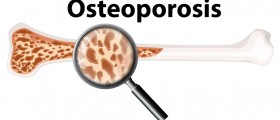
Introduction to calcium
Calcium is essential for the human body and is a mineral that the body needs in order to the maintain and strengthen the bones, teeth and nails in particular.
It also regulates the nerve and muscle functions. Some foods that contain calcium and should be included in the everyday diet include dairy products, green leafy vegetables, tofu, broccoli and orange juice, but there are many more.
When a person is getting the right amount of calcium, they are able to thwart problems such as osteoporosis and there is a smaller chance that the person will develop kidney stones. Calcium will also regulate blood clotting and muscle contractions.
It is absorbed in the small intestine and it must be broken down within the digestive tract before it can be absorbed by the body.
However, if a person is ingesting too much calcium, this could lead to problems and side effects.
Side effects of excessive calcium intake
If a person is consuming too much calcium, then they are likely to experience constipation. In order to make sure that this does not happen, people should be taking magnesium and vitamin D supplements as well. When a person experiences constipation for a long period of time, it can lead to stomach ulcers and bloating.
Too much calcium in the bloodstream can lead to hypocalcaemia, which often causes kidney stones. Symptoms of this condition include vomiting, fatigue, a lack of appetite and constant thirst.
Another side effect, one that can be very embarrassing, is flatulence. Too much calcium can make a person feel bloated and an excess of gas can build up within the body.
General stomach problems could also arise, such as vomiting, nausea and cramps.
If a person ingests too much calcium it can lead to plaque build up in the arteries, which can eventually increase the person’s chances of having a heart attack as well.
Other common side effects of excessive calcium intake include confusion, digestive problems, dizziness, dry mouth and even seizures in some cases.
If a person is thinking about taking calcium supplements, it is best to consult with a doctor first to see if it is necessary at all. It is always better to talk to a doctor before self-medicating, because putting too much calcium in the body has been known to do more harm than good in many cases.
Another reason to talk to a doctor first is because calcium can have very negative effects if it is combined with a certain other drug or medication that a person might be taking at the time.

















Your thoughts on this
Loading...